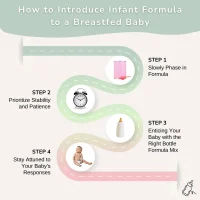Many herbal weight loss supplements include ephedra-derived ingredients, which may appear on labels under various names such as Ma Huang, Ephedra sinica, Sida cordifolia, or ephedrine alkaloids. Products like Metabolife, Herbalife, OmniTrim, and certain energy drinks (e.g., Ultimate Orange) have historically contained these components.
I strongly advise avoiding ephedra-containing products entirely, regardless of breastfeeding status, due to significant safety risks. Though traditionally used for asthma, ephedra is linked to severe cardiovascular complications, including heart attacks and fatalities. Cases have documented deaths in young individuals with undiagnosed health conditions at doses as low as 36 mg. Regulatory agencies like the FDA and Health Canada have repeatedly issued warnings, culminating in the U.S. ban of ephedra in 2004. While limited data exist on ephedrine secretion into breast milk, small amounts of related compounds like d-isoephedrine may transfer during lactation.
Additionally, herbal weight loss formulations often combine multiple herbs, complicating the identification of specific allergens or irritants if an infant exhibits adverse reactions. This lack of ingredient transparency underscores the importance of caution when using such supplements.
Common Herbal Ingredients in Weight Loss Products and Associated Risks
Weight loss supplements often contain a range of herbal components, many of which carry potential health concerns. Stimulants such as ginseng, caffeine (from guarana, kola nut, yerba maté, or green tea), and bitter orange (Citrus aurantium) are frequently included. These substances may disrupt infant sleep patterns, interfere with feeding routines, or pose risks to both maternal and infant health.
5-HTP (5-Hydroxytryptophan) is strongly discouraged for breastfeeding mothers due to its potential to hinder neurological development in infants or reduce milk production. Chitosan, a fiber-like substance sourced from shellfish shells (e.g., shrimp, crabs), lacks evidence for weight loss efficacy and carries a significant allergy risk for individuals sensitive to shellfish.
Chromium picolinate, a chromium variant, shows no proven benefits for weight management (see analysis by Chris Woolston, M.S.). Similarly, hydroxycitric acid (HCA), also labeled as Tripotassium Hydroxycitrate or Appetrim hydroxycitrate, should be avoided during pregnancy and lactation. Research indicates HCA may suppress cholesterol and steroid hormone synthesis, raising developmental concerns for infants.
Herbal laxatives (senna, aloe vera) and diuretics (uva-ursi, dandelion root) are commonly added but may disrupt digestive or fluid balance. Ingredients like kelp and bladderwrack, which stimulate thyroid activity through iodine, risk overloading metabolic systems. Even St. John’s Wort, though not directly marketed for weight loss, introduces pharmacological risks that warrant caution.
Psyllium, a fiber supplement, is generally considered safe but should be used mindfully (refer to NIH guidelines for details). Always verify ingredient safety, as combinations of these herbs can amplify risks, particularly for sensitive populations like nursing mothers and infants.




